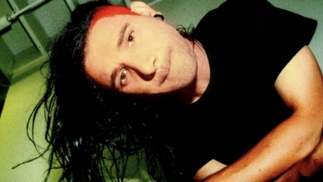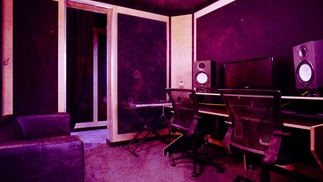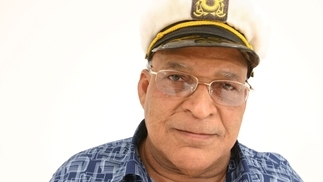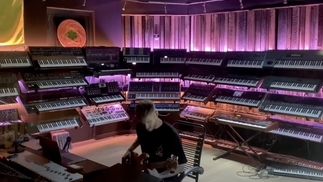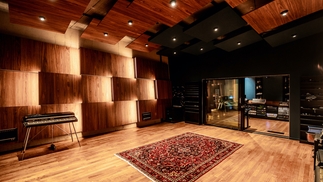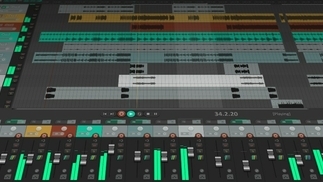IN THE STUDIO WITH: KIDSUKE
Behind the scenes in the Kidsuke studio!
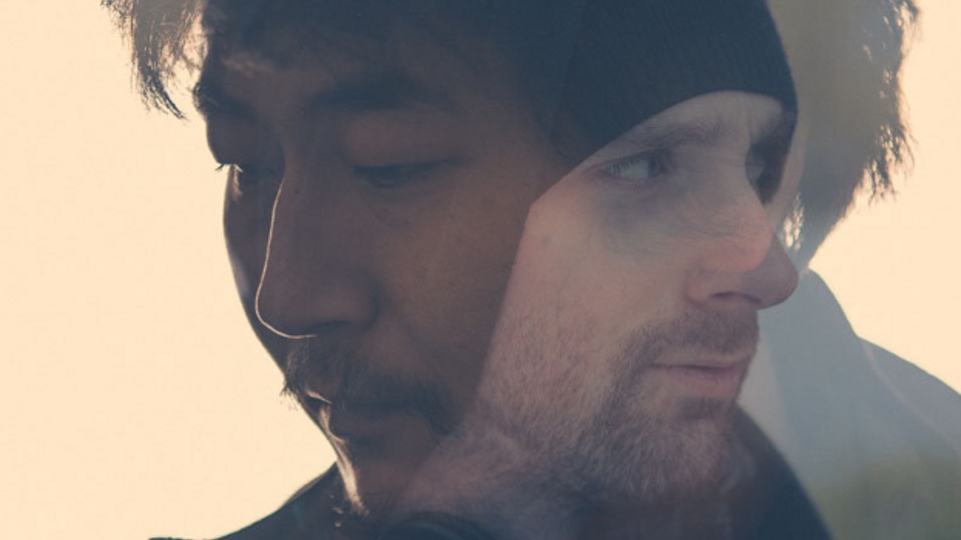
Kidkanevil and Daisuke Tanabe are two young trailblazers who have come together to form Kidsuke, inspired by their shared love of Japanese culture, new technology and kids' toys. DJ Mag spoke to the guys about their new album and subsequent tour, and the difficulties of putting it altogether when living worlds apart...
Schooled in hip-hop and crate-digging culture, Leeds DJ/producer Kidkanevil has more strings to his bow than Robin Hood. His three albums have explored everything from deep sampladelic trip-hop vibes to club-ready electronic rap beats, via bass-heavy dubstep, and he's collaborated with Ninja Tune's Bonobo, Lateef The Truthspeaker (of DJ Shadow's Quannum collective), Brazilian MC Yarah Bravo and Foreign Beggars, while being the beatsmith and turntablist for Leeds band Stateless.
Japan's Daisuke Tanabe is a fellow downtempo beatminer with releases on labels like Circulations, Fluid Ounce and Dancing Turtle. Together, they form the new project Kidsuke, with a sound that draws as much from their beats 'n' bass expertise as it does a new sensibility of atmospheric cinematica. Delicate chimes, musicboxes and kalimbas form the musical backdrop of 'Kidsuke', their debut album on Project: Mooncircle, out now. We linked up with the pair to talk working long distance, Red Bull Music Academy and repurposing children's toys to make new sounds...
How did you guys get together?
Kidkanevil: “We have known each other's music for a while, but we actually met as participants at the Red Bull Music Academy in 2010 when it was in London. We pretty much spoke quite early on about the idea of collaborating on music together. We also met Cherry Chan at RBMA, who runs a night in Singapore called Syndicate, she got us out to play over there, then I went across to Japan and asked Daisuke to do a remix for me. And in amongst all that, we just started to talk more seriously about making records together, and it just became a real natural progression from that point. We then hooked up with Original Cultures, a non-profit arts and culture organisation that are based in the UK and Italy, to put on the Kidsuke tour.”
You’re both based in different countries. How did you find it collaborating on the album?
K: “When we did the album, we did a couple of sessions, some in Japan and Singapore, just collecting field recordings and stuff. Then when Daisuke was over in Europe, we had a few sessions in my house recording loads of children’s toys and pianos and synths. We took those away with us, then both just start working on separate ideas. When we got to a certain point with the idea, we would shoot it across to the other person, who would then finish it off. We’d bounce the track back and forth to add the final touches. It was really just sending the tracks back and forth until they became kind of finished.”
Daisuke: “Yeah, it was easier than I thought it was going to be... because of the internet, it was so easy to send audio files across to each other. It is pretty much similar to working with someone in the same country.”
So the internet was pivotal to making this album happen?
K: “I’ve seen stuff like Ohm Force and Bitwig’s new sequencers that allow producers to work together in real time whilst being in two separate countries via the internet. I’ve not tried them out, but I think it’s a dope idea, especially as we seem to be in the golden era of the next phase of the bedroom producer mentality. A lot of us who have grown up making our own beats in our own little spaces, we are quite used to working alone, that kind of introverted thing, so it's kind of nice in a way to work on a project online, as it means you can collaborate with people without intruding on that unique type of vibe, breaking in on their own personal space. Any program and system that can make this happen naturally and faster is a really cool thing, and it makes working with people on the other side of the world just so easy.”
What do your studio set-ups consist of?
D: “We both work off Macbook Pros. I use Logic and a few synthesisers. I also use field recorders most of the time, as I use them to capture sounds that I can then develop.”
K: “A laptop, ProTools, a few synths, a big box full of children’s toys — that’s pretty much it. You can generate so many things with recorded sounds, manipulate them to a certain point, map them out and play musical parts with them. Neither of us have a super crazy set-up, I think in this day and age there is no need for a big studio set-up full of crazy stuff. People make incredible albums just on Ableton and nothing else! It's an amazing time to fulfil your ideas with not much more than a laptop. Can I also just say, the nice thing about field recording and going out there and finding original sounds is, they can give your music more personality, more individual character, than everybody using the same synths and sounds.”
How did you manage to get your live set together?
K: “The live story is quite funny, actually. This is one thing that doesn’t quite work when you both live in different countries — as Daisuke landed on a Wednesday afternoon, we only had a Thursday morning to figure out the whole live show and set before we had to play the gig in the evening. But now we’ve had a bit more time to rehearse. We have two laptops running Ableton which we sync together via MIDI clock, so we can both play different parts and be locked in tight with each other. Then we have the separate audio parts from our own tracks and the Kidsuke tracks, and just mix them all up together. I use an Akai MPD controller, and Daisuke is using the APC40. “We have kept the set-up simple at the moment, because we haven’t had time to do much more than that, we just want to make sure that we perform without causing chaos, but we have been talking about having a mic’d up table with loads of the children’s toys we used to make the album, so that we playsome more stuff live.”
D: “We are trying to have as much fun as we can, keeping a child type vibe, you know, as a child just doesn’t care. We just want to keep that child-like fun element.”
K: “We both share a common ground when it comes to our music and ideas. Even though we have separate influences, we have similar tastes to the music that we like and how we have both grown musically. Daisuke has soaked up quite a lot of UK culture and sound from previously living in London, and I’ve grown up watching anime and immersed myself in Japanese music and sonic textures. All this comes together to help form Kidsuke.”
RBMA helped get you guys together. How important are schemes like this for new producers?
D: “It is important, because it gives these guys a chance to meet great artists from all over the world. It also gives young producers the opportunity to record and produce on some great equipment. The studios are very well spec-ed.”
K: “I think the RBMA thing is such a good idea, executed properly. There are a few other schemes that try to do a similar thing, but these guys just seemed to get it right. Every year they are introducing artists that are relatively unknown before the sessions, and for the actual two weeks when you’re there, for a musician, it is the greatest scenario that you can imagine. You just get to meet these really inspirational lecturers and get to work with all these amazing and talented people, and learn so much and get to go to these really amazing gigs. It is just a really cool thing — it’s a bit like Willy Wonka’s Chocolate Factory, except for musicians.”
To find out more about Red Bull Music Academy, including how you can apply to become a participant, check out:
